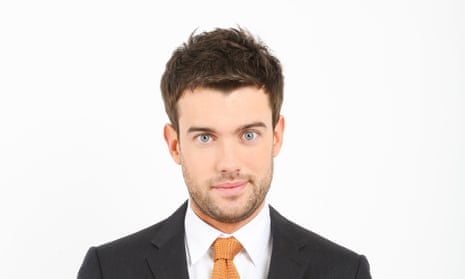News greets us this week of yet another triumphant milestone for LGBTQ+ rights, with the casting of Disney’s “first openly gay character” (tell that to Ursula from The Little Mermaid), in Jungle Cruise, a film loosely based on a rollercoaster. We’ve come a long way since Stonewall. In the role of “Emily Blunt’s character’s brother”, who is described as “hugely effete, very camp”, the studio has cast Jack Whitehall, a straight man, leading to recriminations and debate among the queer community. It’s worth looking at a few of the questions raised by this casting, and what it says about gay identity in 2018.
In recent years, we’ve had a flurry of queer-themed films, from Call Me By Your Name to Love, Simon via God’s Own Country, Beach Rats and 120 BPM. From the success of Carol to the imminent release of The Miseducation of Cameron Post, it would seem that LGBTQ+ cinema is in relatively good nick right now. But look again at the casting of these films. Only one of them (120 BPM) features out gay actors in the main roles, giving an on-screen sense of the specific ways queer bodies interact with one another, how we speak and project ourselves. The rest, from Timothée Chalamet through to Rooney Mara via Josh O’Connor – thrillingly talented actors all – are straight, or at least not out. This has several implications.
The first of these is that we are assisting in an act of queer erasure: our gay stories are told, but with straight mannerisms, creating stories that can have a slightly artificial feel. You only have to watch Dominic West’s dancing in the film Pride for two seconds to understand that there are some things beyond a hetero’s range. When Chalamet and Armie Hammer lock eyes in Call Me By Your Name, I don’t get a thrill of queer recognition, but I see straight men playing at fancying one another. The thing is, queerness is not merely the mirror image of straightness, but a different proposition. And the set of codes we have devised or been saddled with are a sign of our difference and indeed of our continuing oppression by straight people.
“But can’t an actor simply imagine that?”, I already hear the bootcut-jeans-wearing denizens of the internet boohooing. Perhaps. But consider that heterosexual people were surprised when a poll emerged earlier this year revealing that a majority of gay people are afraid to hold hands in public. To gay people this is obvious, as we know the abuse and violence we experience in our daily lives. To some straight people, this was not imaginable. We conclude, therefore, that gay people can act straight convincingly, as we’re able to observe the ubiquitous straight mainstream, but it’s a far trickier proposition in the other direction, because that involves going into the margins.
It’s also a queasy thing to witness straight people earning capital and cachet from playing gay, while the alternative hardly ever happens. (Hollywood is a closeting machine, and if you don’t believe me, try naming five out American film actors off the top of your head.) Chalamet has earned a great deal of kudos and notoriety on the back of Call Me By Your Name, and his place as a darling of the internet owes a lot to an image that trades off his gay fandom, earning himself publicity-boosting interviews with queer figures like Frank Ocean. Can we imagine an out gay actor with this level of adulation? If there was genuine equality between the different sexualities, the question would not come up: but there is not.
No one is asking for all gay roles to be played by gay people – but until we have equality, it’s right to ask for sensitivity in the ways we are represented, and for opportunities for gay people to participate in telling our stories. The brouhaha over Whitehall, whatever its outcome, shows that we need to rethink our basic attitudes, and are hearteningly beginning to do so.
Caspar Salmon is a film writer based in London
